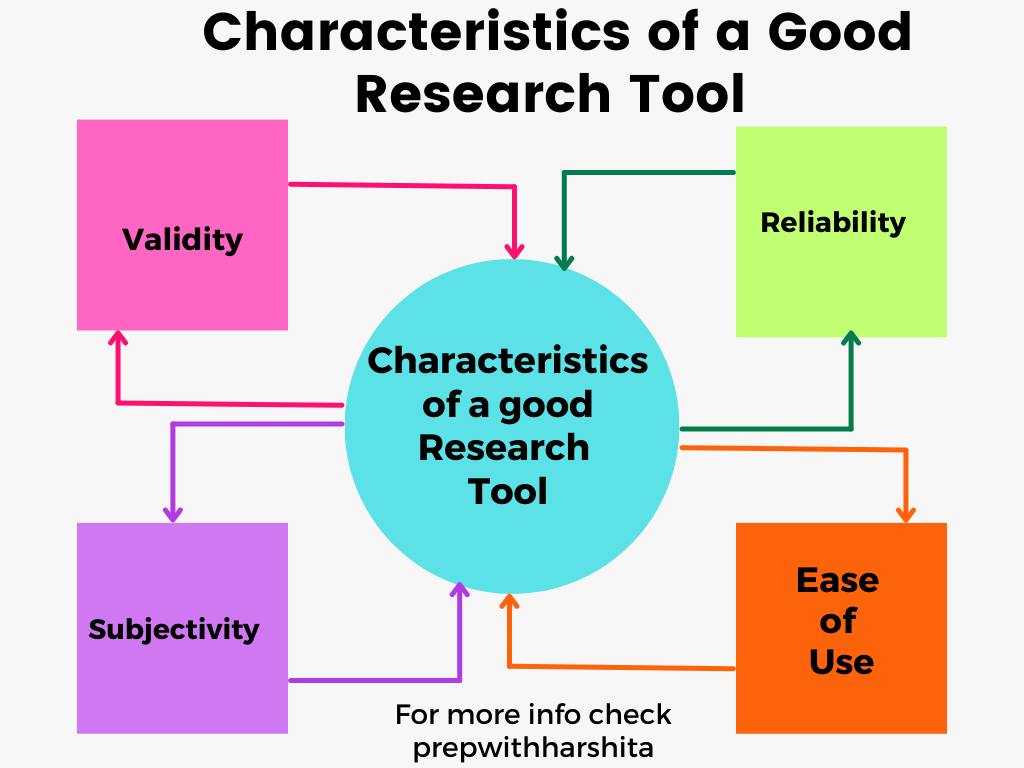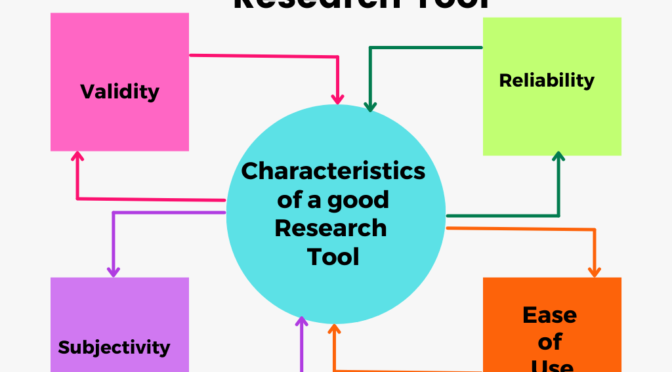A good research tool should possess the following characteristics:
- Validity:
Validity refers to the extent to which a research tool accurately measures what it is intended to measure. A good research tool should have a high degree of validity. In other words, it should measure what it claims to measure. A valid research tool will help researchers make accurate conclusions about the variables they are studying.
To ensure validity, researchers need to design their research tool to be specific to their research question. They should also test the tool to ensure that it is measuring what it is intended to measure. There are different types of validity that researchers can assess, including content validity, construct validity, and criterion-related validity.
- Reliability:
Reliability refers to the extent to which a research tool produces consistent results. A reliable research tool should produce the same results when used repeatedly under similar conditions.
To ensure reliability, researchers should conduct a pilot study to test the research tool and identify any sources of error. They can also use statistical techniques to assess the reliability of the research tool. The most common method used to assess reliability is the test-retest method, where the same participants are tested with the same tool at two different times, and the results are compared.
- Sensitivity:
Sensitivity refers to the ability of a research tool to detect differences or changes in the variables being measured. A sensitive research tool should be able to identify even small differences in the variables being studied.
To ensure sensitivity, researchers need to choose a research tool that is appropriate for the variable being measured. They should also ensure that the tool is capable of detecting small changes in the variable.
- Objectivity:
Objectivity refers to the degree to which a research tool is free from the influence of the researcher’s personal biases or opinions. A good research tool should be objective and produce unbiased results.
To ensure objectivity, researchers should use standardized procedures when administering the research tool. They should also ensure that the tool is designed to minimize the influence of any personal biases that might affect the results.
- Standardization:
Standardization refers to the extent to which a research tool can be used consistently across different settings and by different researchers. A good research tool should be standardized so that it can be used reliably and consistently.
To ensure standardization, researchers should provide clear instructions for using the research tool. They should also provide training to anyone who will be using the tool to ensure that it is used consistently across different settings and by different researchers.
- Ease of use:
A good research tool should be easy to use and administer. It should be designed so that it can be used without any special training or expertise.
To ensure ease of use, researchers should design the research tool to be user-friendly. They should also provide clear instructions for using the tool and offer support to anyone who needs help using it.
- Availability:
A good research tool should be readily available and accessible. It should be easy to obtain and use by researchers who need it.
To ensure availability, researchers should make the research tool available online or through commercial sources. They should also ensure that the tool is affordable and accessible to researchers who need it.
- Acceptability:
A good research tool should be acceptable to participants and stakeholders. It should not cause any harm or discomfort to the people who are being studied.
To ensure acceptability, researchers should design the research tool with the needs and preferences of the participants and stakeholders in mind. They should also obtain informed consent from participants before using the tool.
- Cost-effectiveness:
A good research tool should provide value for money. It should be cost-effective and provide benefits that outweigh the costs of using it.
To ensure cost-effectiveness, researchers should choose a research tool that is affordable and that provides the necessary level of accuracy and reliability. They should also consider the potential benefits.
Also Visit: Prep with Harshita


